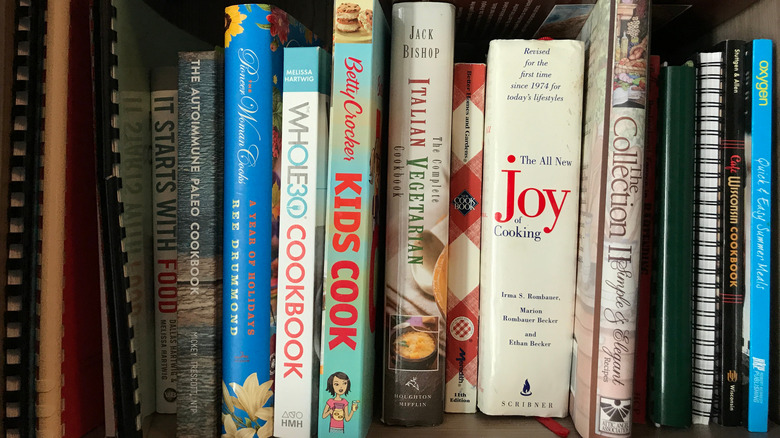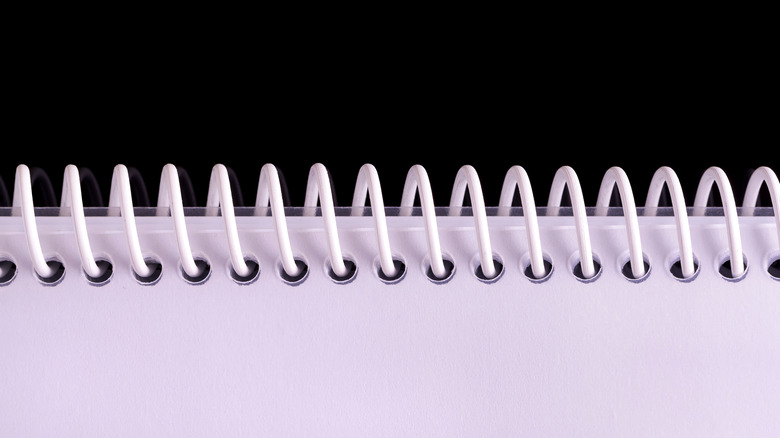Why You May Find Unofficial, Spiral-Bound Copies Of Your Favorite Cookbooks On Amazon
Amazon gives you options, to be sure. Books come in hardcover, paperback, and digital formats, as one would expect. Then there are spiral bound books, which lay flat and remain open to a certain page, making them popular for textbooks, cocktail guides, and cookbooks.
Even if they're being sold at a steep markup compared to other formats, it's often a welcome sight for a buyer to encounter a spiral-bound version of a cookbook like Ina Garten's "Go-To Dinners" or a cocktail book such as "The Art of Mixology" that will stay open. We all know the headache of losing our place in a recipe when the cookbook accidentally closes shut and we've got both hands deep in bread dough or ground chicken. What may come as a surprise, though, is that these versions of popular culinary tomes aren't issued by the publisher, but rather are specialty products produced by third-party sellers who specialize in a growing niche industry.
The practice, which was recently investigated by VinePair, is fairly easy to understand. Companies, such as TB Superstore and Sweethome Books, purchase the books from authorized distributors or the publisher, then manually strip and replace the spine with spiral binding. The process is completely on the up-and-up, as confirmed by the Supreme Court, because even though the publishers and authors won't be involved in the re-sales, they will have made their money and royalties from the initial purchases. In a sense, the third-party vendors are simply selling used books, although they have been physically doctored.
Filling a market desire
The practice, legal as it is, is still vexing for some. Authors have found themselves in the dark about the issue and the physically altered versions of their books, while readers often have no knowledge that they aren't buying an original version straight from the publisher. So why does this happen?
The simple answer is that there is a market for spiral-bound books that publishers either don't have the interest, energy, or capital to want to address. That vacuum will naturally be filled. Further, bookbinding isn't cheap, and the labor that goes into spiral-binding a book that has already been bound, from precisely sawing off the spine to carefully drilling out the holes and threading the coils, is even more expensive as it must be done a single book at a time.
If you find yourself questioning whether to buy spiral-bound versions of books, consider that the purchase still represents a sale with all due money and royalties being paid. If this still bothers you though, take heart in the fact that there is no shortage in the number of cookbook holders out there, from ornate to practical, with many available, you guessed it, on Amazon.

